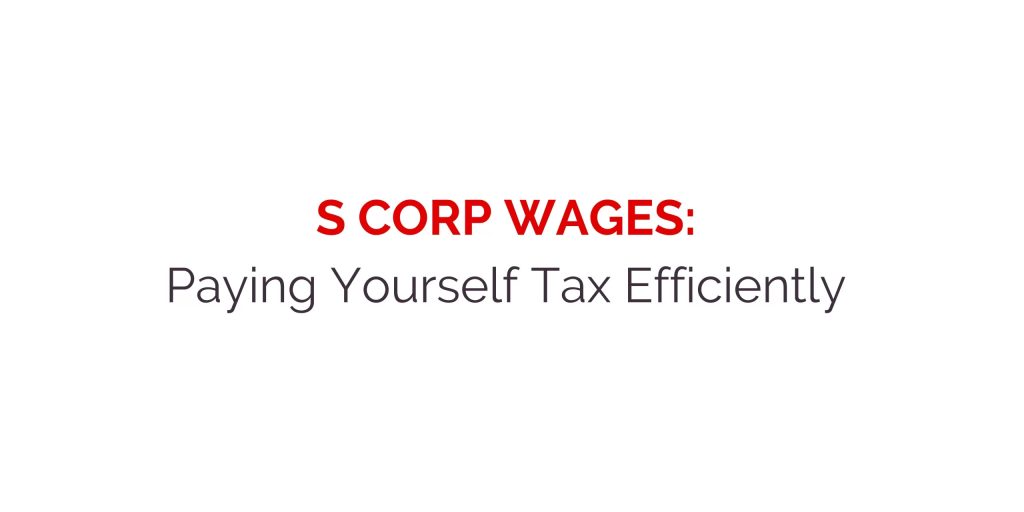Ways to pay yourself as an S Corp
If you have structured your business as an S Corporation (S corp) or an LLC that is taxed as an S corp you can save in self-employment taxes. That said, it is important to be intentional when deciding how to pay yourself as an employee of your business. S corps don’t pay taxes on revenue but instead pass through income to the owners of the business. This allows owners of the business to avoid the double taxation that C corporations who must pay taxes both at the business and the individual level find themselves subject to. There are three ways that an S corp owner can pay themselves: salary, distribution, or a combination of the two. As an owner that is actively involved in the day to day operations of the business, a combination is often the appropriate solution.S Corp Salary
The salary component of pay will be subject to FICA taxes and as the owner and employee both sides of the tax must be paid. There are two components of FICA, Social Security taxes and Medicare taxes. For 2023, Social Security taxes combine to 12.4% of salary up to the taxable maximum of $160,200. Medicare taxes combine to 2.9% of salary with no cap. This means that salary under the Social Security tax limit are subject to a total FICA tax of 15.3%. Example: Jane is the owner and operator of ABC Co. As an employee of the business she is paid $200,000 per year in salary that is subject to both the employer and employee portion of FICA taxes. The amount up to $160,200 is subject to the combined 15.3% amount ($24,510.60) while the remaining $39,800 is only subject to the Medicare component of 2.9% ($1,154.20). The total amount of FICA taxes Jane will owe is $25,664.80.S Corp Distribution
The distribution component of S-corp pay is not subject to these FICA taxes but will be subject to income taxes. This means that any income that is categorized as a distribution instead of salary can save up to 15.3% in taxes. Example: Jane’s business made $500,000. Since she paid herself a salary of $200,000, the additional $300,000 of income is considered a distribution not subject to FICA taxes. If this amount was considered salary it would have been subject to the 2.9% Medicare tax saving her $8,700 in taxes. If she was treated as a sole proprietor or LLC tax treatment, 92.35% of the amount would be subject to Medicare taxes for an additional bill of $8,034.45.Reasonable Salary for an S Corp Owner
Given the tax efficient nature of a distribution compared to salary, many business owners ask why they can’t simply forgo the salary and only receive distributions. Because the owner of a business that has elected S corp treatment is often also an employee, the IRS is rigorous in it’s enforcement that the business owner must receive a reasonable salary for their work completed in the business. When determining what a reasonable salary is, the IRS instructs owners to pay an amount that would be paid to others in the field. This includes the following criteria:- Training and experience
- Duties and responsibilities
- Time devoted to the business
- Efforts devoted to the business
- Pay to non-shareholder employees




